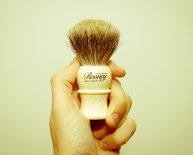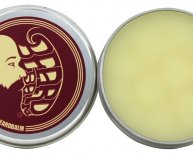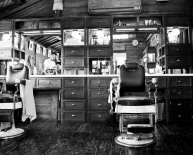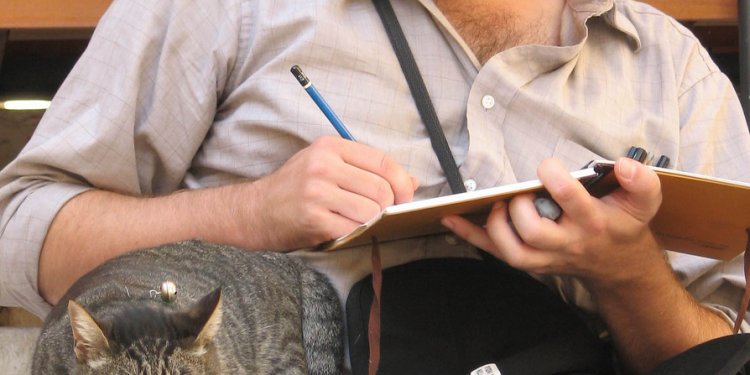
Barber Magic Pencil
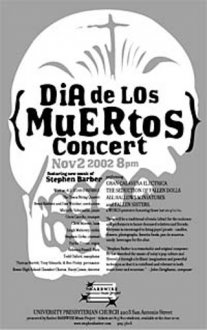 Over a cup of coffee at Flipnotics, Stephen Barber rifles through a thick stack of sheet music, carefully examining the unlimited a number of dots spread across all of them. On Nov. 2, those intricately organized notations will teach an area 10-piece ensemble at his Dia de los Muertos concert. For 40 minutes, those ink spots will finally yield songs, ending the Austin composer's monthlong stretch of 14-hour times at their piano workbench.
Over a cup of coffee at Flipnotics, Stephen Barber rifles through a thick stack of sheet music, carefully examining the unlimited a number of dots spread across all of them. On Nov. 2, those intricately organized notations will teach an area 10-piece ensemble at his Dia de los Muertos concert. For 40 minutes, those ink spots will finally yield songs, ending the Austin composer's monthlong stretch of 14-hour times at their piano workbench.
Finished underneath the guillotine of due date, "The Fallen Sisters" presents Barber's many ambitious work to day. As the title shows, this chamber music will pay tribute to the sufferers of 9/11. Taking the date's wide mental range features presented the most challenge for Barber, a musician having long surrounded himself with likewise eccentric and expressive visionaries: from celebrated rock performers like Keith Richards, Billy Gibbons, and David Byrne to renowned composers and arrangers Van Dyke Parks, Joe Zawinul, and John Corigliano.
As grave as it's, "The Fallen Sisters" is poised to become one of Barber's biggest achievements. Yet, after receiving its local premiere, the dotted composition report will most likely secure in one of three large footlockers packed with sheet songs that Barber hauls between Austin and New York. They are his life tale, their musical memoirs: a huge selection of ratings for big orchestras, little ensembles, and choral teams. They may be additionally the answer to comprehending Barber's very nearly paranormal control/ fixation: articulating himself through timber and rubber.
"we typically go through erasers faster than pencils, " describes Barber. "Composing with pencil and paper is sort of a Pavlovian excitement. Seeing the report get higher in addition to pencils get faster, you start to feel great about your self - as if you're working."
In all honesty, Barber happens to be "working" practically nonstop for over three years. For musical diversity of his canon and also the level of identifiable collaborators, their résumé sets him in top echelon of modern-day composers/arrangers: from his tutelage under Parks and Corigliano to his continuous utilize Richards, Byrne, and Arto Lindsay.
While commissions from because far away as Bulgaria and Czechoslovakia have actually given their work a worldwide profile, Barber continues to be a mainly unknown figure both abroad plus in Austin, where Barber's notable contributions consist of becoming a founding person in Eric Johnson's Electromagnets and keyboard/arrangement with Christopher Cross, Alejandro Escovedo, Stephen Bruton, and Shawn Colvin.
"I really benefit from the anonymity, " acknowledges Barber. "I'm perhaps not ashamed to state I'm 52 yrs . old, but privacy in arranging could be important. Without maintaining a higher profile, they may be less likely to want to state, 'Oh, he's too-old to figure out a trip-hop piece.'"
Undoubtedly, with his current work with Meshell Ndegeocello's Bitter and Joe Henry's Scar, Barber comes with ethereal, almost-trip-hop-leaning pieces among his vast credits. With time, Barber's only trademark usually no two Stephen Barber pieces sound alike.
"[He] refutes Leonard Cohen's opinion that composers usually have 1 or 2 primary motifs, which they keep doing variations of, " claims singer-songwriter Jennifer Warnes, a longtime Barber collaborator. "I've never ever satisfied anyone who hears just what Stephen hears."
"The Fallen Sisters" is unambiguously less abstract and more psychological than the almost all his work, but Barber generally deals when you look at the aural exact carbon copy of one of his true hobbies: people art. Their compositions think on found items. His trademark work, for example, "Gran Calavera Electrica, " will be based upon a woodcut by lithographer Joe Posada in which a trolley vehicle packed with souls arrives at a cemetery.
Other pieces have actually comes from their travelogues, film dialogue, and conversations overheard in ny coffeehouses. Barber calls the entire process of turning slices of life into music "encoding and imprinting, " and states he's been at it since he was about 12. In the still-segregated Abilene associated with Fifties, where he was born, Barber started collecting impacts: from their piano-playing mama's love of classical and country songs to the Church of The united kingdomt hymns he heard on Sundays.
"we started by playing Bach preludes and sort of veering from the page and improvising parts, " states Barber, just who acquired piano at 5 and guitar at 11. "I loved ancient songs and think I in some way sensed the miracle. For a youngster beginning work in composition, it was like finding a mediator amongst the crazy world online and the thing that was going on inside myself. To express my feelings ended up being empowering."
Barber's later work locates him articulating himself away from tight constructs of what exactly is typically categorized because "classical, " but he states that even pieces that might be considered avant-garde must hit a balance between discipline and abstraction.
"songs is a lot like air sculpture, " he claims. "You're simply pushing atmosphere in various guidelines. But just like structure, you can find guidelines. If you develop something without deciding on gravity, it will collapse. Music is the identical.
"Something Billy [Gibbons] said has actually always caught beside me; that playing melodically and slipping a note brings major mankind into the music, like Miles Davis. However, if some thing fails rhythmically, the locals have restless. Occasionally you need to drive atmosphere a bit more carefully than the others."
The Fairy Tale
Stephen Barber invested most of the Sixties safely ensconced in armed forces school. Because of the choice between high school in Tx or Tennessee, he chosen Suwannee, thinking its distance to Nashville would enable him to run into George Jones on Grand Ol' Opry. Alternatively, he split their time taken between classical composition courses and an instrumental trio modeled after Booker T & the MG's."Our sole escape was our junior course prank, " he states. "Our whole course moved AWOL; we visited Memphis to see Led Zeppelin. We lost our minds to be able to see Zeppelin reside."
36 months and many more ins of hair later, Barber graduated and made his method to San Marcos to attend Southwest Texas State University. His first Austin musical organization ended up being called Cadillac. Affected by the post-Vulcan petrol business scene - the one that featured Crackerjack and Johnny Winter - and soon after the chance to see ZZ Top on brand new Orleans Club, Cadillac played classic stone - hill, the Allman Brothers.
Regarding the heels of brief avant-garde jazz experiments with Aussenhorowitz additionally the Edsels, Barber and ex-Cadillac drummer Bill Maddox founded the Electromagnets in 1973 and brought Eric Johnson into the fold a year later on. From there, they became Armadillo regulars, sharing expenses making use of their idols: Weather Report, Captain Beefheart, and Frank Zappa, which notoriously described the Electromagnets as "Mahavishnu with a feeling of humor."
Once the Electromagnets disbanded in 1976, Barber had immersed himself in structure study at Southwest Tx beneath the tutelage of famed composer Russell Reipe.
"He changed my entire life, " states Barber. "there is one-day I was playing a Beethoven sonata extremely nervously. He took us to a bar and said, 'Beethoven was a wild guy - he would flip dishes over and get intoxicated. You need to comprehend he was a hellraiser. You need to loosen up.'"
It was precisely that new outlook that made him shun an invite to Juilliard after Dean Gideon Waldrop informed him he would want to invest at the very least 12 hours every single day in conservatory. As an alternative, Barber moved to nyc where Waldrop advised Barber to composer John Corigliano. For three-years the pair came across for intensive classes while Barber made inroads into ny's tight-knit scene as a copyist.
"I was performing 'take-downs' - transcribing other's music, " recalls Barber. "It's not artistically charged work. It's like being a stenographer. Section of me personally believed I'd be a copyist the rest of my entire life."
By 1983, Barber had begged, borrowed, and taken sufficient studio time for you to have a small, but obviously impressive, demo of his or her own compositions. a shared buddy of Shelley Duvall's introduced the actress Barber's work whenever she was looking for help with the woman Faerie Tale Theatre series for Showtime. She asked if he would done soundtrack work. He stated he'd (a white lie), and became the series' staff composer, taking care of 13 original ratings underneath the direction of Van Dyke Parks.

